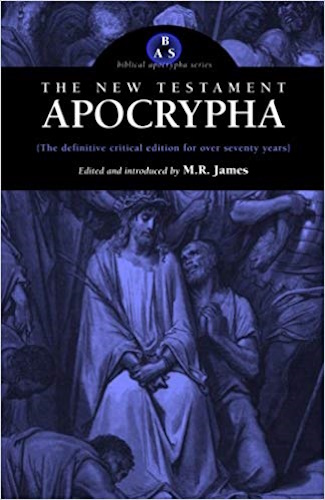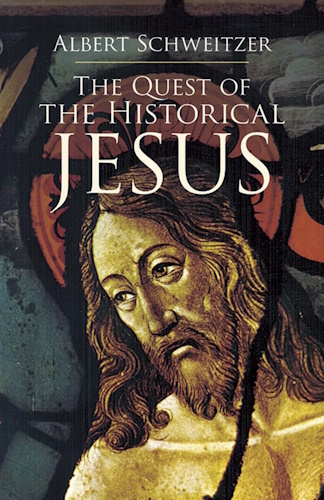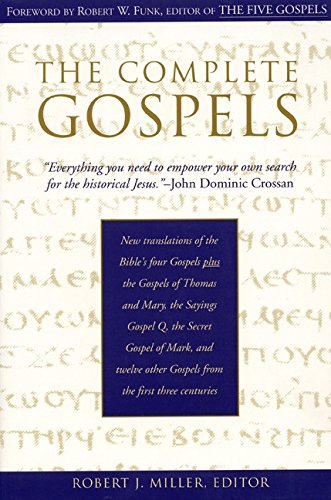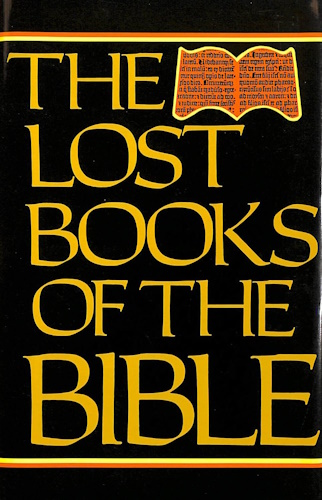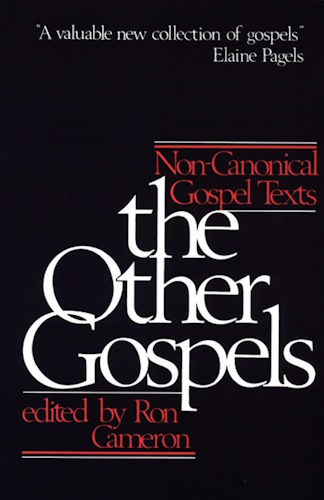
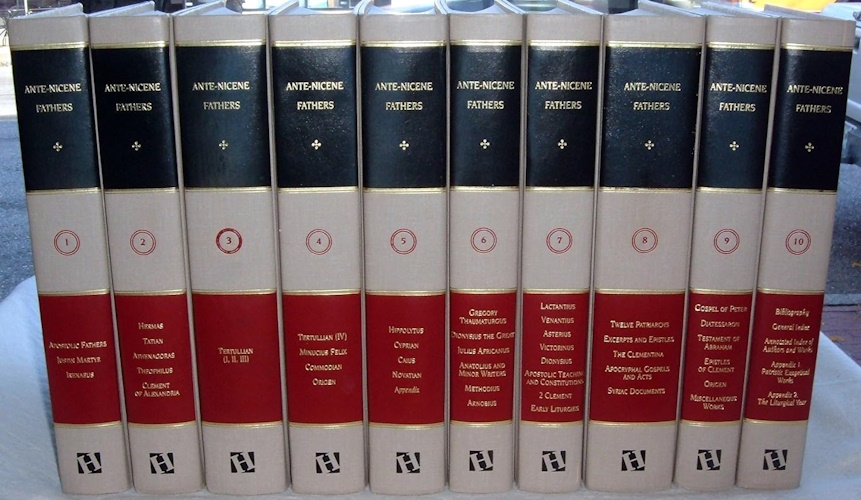
The Pastor of Hermas
Book Third-Similitudes
Similitude First
From: Early Church Fathers 38 Volumes
Ante-Nicene Fathers: The Writings of the Fathers down to a.d. 325 Vol. II
edited by
Rev. Alexander Roberts, D.D., and James Donaldson, LL.D.
Translated by the Rev. F. Crombie, M.A.
The Pastor of Hermas
SIMILITUDE FIRST.
As in This World We Have No Abiding City, We Ought to Seek One to Come.
He says to me, "You know that you who are the servants of God dwell in a strange land; for your city is far away from this one.245 If, then," he continues, "you know your city in which you are to dwell, why do ye here provide lands, and make expensive preparations, and accumulate dwellings and useless buildings? He who makes such preparations for this city cannot return again to his own. Oh foolish, and unstable, and miserable man! Dost thou not understand that all these things belong to another, and are under the power of another? For the Lord of this city will say, 'I do not wish thee to dwell in my city; but depart from this city, because thou obeyest not my laws.' Thou, therefore, although having fields and houses, and many other things, when cast out by him, what wilt thou do with thy land, and house, and other possessions which thou hast gathered to thyself? For the Lord of this country justly says to thee, 'Either obey my laws or depart from my dominion.' What, then, dost thou intend to do, having a law in thine own city, on account of thy lands, and the rest of thy possessions?246 Thou shalt altogether deny thy law, and walk according to the law of this city. See lest it be to thy hurt to deny thy law;247 for if thou shalt desire to return to thy city, thou wilt not be received, because thou hast denied the law of thy city, but wilt be excluded from it. Have a care, therefore: as one living in a foreign land, make no further preparations for thyself than such merely as may be sufficient; and be ready, when the master of this city shall come to cast thee out for disobeying his law, to leave his city, and to depart to thine own, and to obey thine own law without being exposed to annoyance, but in great joy. Have a care, then, ye who serve the Lord, and have Him in your heart, that ye work the works of God, remembering His commandments and promises which He promised, and believe that He will bring them to pass if His commandments be observed. Instead of lands, therefore, buy afflicted souls, according as each one is able, and visit248 widows and orphans, and do not overlook them; and spend your wealth and all your preparations, which ye received from the Lord, upon such lands and houses. For to this end did the Master make you rich, that you might perform these services unto Him; and it is much better to purchase such lands, and possessions, and houses, as you will find in your own city, when you come to reside in it. This is a noble and sacred expenditure, attended neither with sorrow nor fear, but with joy. Do not practice the ex-
page 32
penditure of the heathen,249 for it is injurious to you who are the servants of God; but practice an expenditure of your own, in which ye can rejoice; and do not corrupt250 nor touch what is another's nor covet it, for it is an evil thing to covet the goods of other men; but work thine own work, and thou wilt be saved."
244 [We have seen in Justin and Irenæus what seem to us an overstrained allegorizing, and more will be encountered in Origen. On this whole subject, however, as it struck the Oriental and primitive instincts, take the following very illustrative remarks, attributed to Hartley of Winwich:—
"Nature, in its proper order, is the book of God, and exhibits spiritual things in material forms. The knowledge of correspondences being so little understood, is one main cause of the obscurity of the Scriptures of the Old Testament, which were chiefly written by the rules of this science: and not Scripture alone, but man, also, as an image of the spiritual and natural worlds, contains in himself the correspondences of both: of the former, in his interior, and of the latter in his exterior or bodily, part, and so is called the microcosm, or little world."
Such texts as Heb. ix. 24, 1 Cor. ii. 13, 14, go far to explain to us the childlike faith of the Fathers. See note on Leighton's St. Peter, p. 238, vol. iii. Ed. Of William West, B.A. 1870.]245 [Heb. xiii. 14 is the text of this very beautiful chapter. But he original Greek of Phil. iii. 20 seems, also, to be in the author's mind. St. Paul addressed it to the church of a Roman "colony," whosecitizenship was not Macedonian but Roman: hence its beautiful propriety.]
246 This sentence may be also rendered thus, giving ἕνεκεν the meaning of "as regards," "respecting"—a usual enough signification: "What then do you intend to do, as you have a law in your own city regarding your lands and the rest of your possessions?" The Vatican punctuates the passage so that it runs as follows: "What then will you do, who have a law in your own city? Will you, on account of your land, or any other of your preparations, be able to deny your law?" The Vatican also omits several clauses that are in the Greek, down to "for if thou shalt deny, and shalt desire to return," etc.
247 See … law, omitted in Lips. [The θρησκεία of Jas. i. 27.]
248 The Vatican has: "Acquit widows, and do justice to orphans."
249 The Vatican renders, "Do not covet, therefore, the riches of the heathen." [Here follows, in the Lambeth ms., an allusion to Luke xix. 15, which Wake renders: "Trade with your own riches." See, also,Luke xii. 33.]
250 The Vatican, rendering παραχαράσσετε, adulterare, proceeds as if the reference were to adultery. "Neither touch another man's wife, nor lust after her, but desire your own work, and you will be saved."
The Pastor of Hermas - Book Third.—Similitudes.
Similitude First..
As in This World We Have No Abiding City, We Ought to Seek One to Come.
![]()
![]()
-
Urantia Book, 44:0.11 - The Celestial Artisans
Never in your long ascendancy will you lose the power to recognize your associates of former existences. Always, as you ascend inward in the scale of life, will you retain the ability to recognize and fraternize with the fellow beings of your previous and lower levels of experience. Each new translation or resurrection will add one more group of spirit beings to your vision range without in the least depriving you of the ability to recognize your friends and fellows of former estates.
-
Princess Bride 1987 Wallace Shawn (Vizzini) and Mandy Patinkin (Inigo Montoya)
Vizzini: HE DIDN'T FALL? INCONCEIVABLE.
Inigo Montoya: You keep using that word. I do not think it means what you think it means. -
Urantia Book, 117:4.14 - The Finite God
And here is mystery: The more closely man approaches God through love, the greater the reality -- actuality -- of that man. The more man withdraws from God, the more nearly he approaches nonreality -- cessation of existence. When man consecrates his will to the doing of the Father's will, when man gives God all that he has, then does God make that man more than he is.
-
Urantia Book, 167:7.4 - The Talk About Angels
"And do you not remember that I said to you once before that, if you had your spiritual eyes anointed, you would then see the heavens opened and behold the angels of God ascending and descending? It is by the ministry of the angels that one world may be kept in touch with other worlds, for have I not repeatedly told you that I have other sheep not of this fold?"
-
Urantia Book, Foreword - 0:12.12 - The Trinities
But we know that there dwells within the human mind a fragment of God, and that there sojourns with the human soul the Spirit of Truth; and we further know that these spirit forces conspire to enable material man to grasp the reality of spiritual values and to comprehend the philosophy of universe meanings. But even more certainly we know that these spirits of the Divine Presence are able to assist man in the spiritual appropriation of all truth contributory to the enhancement of the ever-progressing reality of personal religious experience—God-consciousness.
-
Urantia Book, 1:4.3 - The Mystery Of God
When you are through down here, when your course has been run in temporary form on earth, when your trial trip in the flesh is finished, when the dust that composes the mortal tabernacle "returns to the earth whence it came"; then, it is revealed, the indwelling "Spirit shall return to God who gave it." There sojourns within each moral being of this planet a fragment of God, a part and parcel of divinity. It is not yet yours by right of possession, but it is designedly intended to be one with you if you survive the mortal existence.
-
Urantia Book, 1:4.1 - The Mystery Of God
And the greatest of all the unfathomable mysteries of God is the phenomenon of the divine indwelling of mortal minds. The manner in which the Universal Father sojourns with the creatures of time is the most profound of all universe mysteries; the divine presence in the mind of man is the mystery of mysteries.
-
Urantia Book, 1:4.6 - The Mystery Of God
To every spirit being and to every mortal creature in every sphere and on every world of the universe of universes, the Universal Father reveals all of his gracious and divine self that can be discerned or comprehended by such spirit beings and by such mortal creatures. God is no respecter of persons, either spiritual or material. The divine presence which any child of the universe enjoys at any given moment is limited only by the capacity of such a creature to receive and to discern the spirit actualities of the supermaterial world.
-
Urantia Book, 11:0.1 - The Eternal Isle Of Paradise
Paradise is the eternal center of the universe of universes and the abiding place of the Universal Father, the Eternal Son, the Infinite Spirit, and their divine co-ordinates and associates. This central Isle is the most gigantic organized body of cosmic reality in all the master universe. Paradise is a material sphere as well as a spiritual abode. All of the intelligent creation of the Universal Father is domiciled on material abodes; hence must the absolute controlling center also be material, literal. And again it should be reiterated that spirit things and spiritual beings are real.
-
Urantia Book, 50:6.4 - Planetary Culture
Culture presupposes quality of mind; culture cannot be enhanced unless mind is elevated. Superior intellect will seek a noble culture and find some way to attain such a goal. Inferior minds will spurn the highest culture even when presented to them ready-made.
-
Urantia Book, 54:1.6 - True And False Liberty
True liberty is the associate of genuine self-respect; false liberty is the consort of self-admiration. True liberty is the fruit of self-control; false liberty, the assumption of self-assertion. Self-control leads to altruistic service; self-admiration tends towards the exploitation of others for the selfish aggrandizement of such a mistaken individual as is willing to sacrifice righteous attainment for the sake of possessing unjust power over his fellow beings.
-
Urantia Book, 54:1.9 - True And False Liberty
How dare the self-willed creature encroach upon the rights of his fellows in the name of personal liberty when the Supreme Rulers of the universe stand back in merciful respect for these prerogatives of will and potentials of personality! No being, in the exercise of his supposed personal liberty, has a right to deprive any other being of those privileges of existence conferred by the Creators and duly respected by all their loyal associates, subordinates, and subjects.
-
Urantia Book, 54:1.8 - True And False Liberty
There is no error greater than that species of self-deception which leads intelligent beings to crave the exercise of power over other beings for the purpose of depriving these persons of their natural liberties. The golden rule of human fairness cries out against all such fraud, unfairness, selfishness, and unrighteousness.
